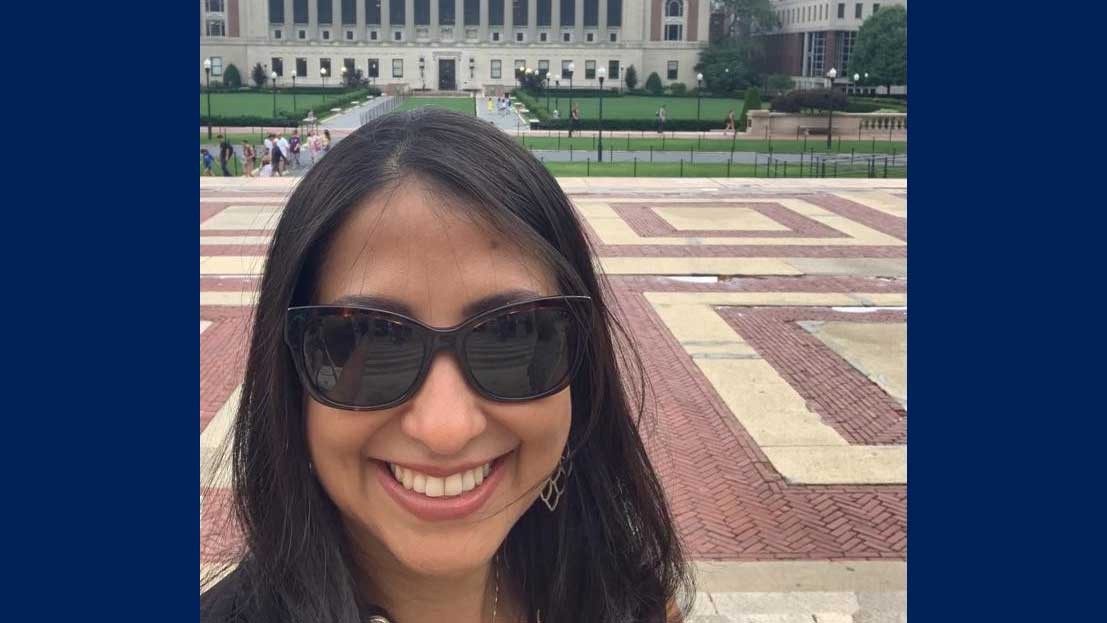Columbia Women's Leadership Network: Interview with Lise Tupiassu
Lise Tupiassu is currently a Visiting Scholar at the Center of Sustainable Investment and Institute of Latin American Studies at Columbia University in New York, and she is one of the great mentors in our Columbia Women's Leadership Network in Brazil.

Lise Tupiassu is a professor and researcher at the Federal University of Pará (UFPA) and the University Center of the State of Pará (CESUPA) and Federal Attorney, working at the Environmental Nucleus and at the Priority Nucleus for Energy, Oil and Gas.
She is Director of the Human Rights Clinic of the Amazon (CIDHA), Associate Researcher at Laboratoire Caribeen des Sciences Social (CNRS-France) and Brazilian Responsible for the Institut de Recherche en Sciences Sociales sur la Biodiversité Caraïbe-Amériques (IRN-IRCAB) and the Rede of International Research Junction Amazonian Biodiversity Units - Research Network Program (JAMBU-RNP).
Lise is currently a Visiting Scholar at the Center of Sustainable Investment and Institute of Latin American Studies at Columbia University in New York, and she is one of the great mentors in our Columbia Women's Leadership Network in Brazil.
CGCRio - Why have you decided to apply for the Visiting Scholar Program now?
I have been working on applied research focused on land-use, fiscal policy, green public finances, and carbon pricing for addressing climate change and deforestation in Amazon rainforest for more than 20 years. However, there is currently a growing interest in this area. Topics like bioeconomy, nature-based solutions and the use of alternative energies, among other things, are gaining more space in global concerns considering the climate risks.
They have a particular importance as key factors Brazil’s sustainability, especially as we work to protect the Amazon rainforest.
That’s why I decided to apply to the Visiting Scholar Program now, in order to be part of the highest-level discussions about these topics in one of the best universities in the world and improve my way of working with them.
One point that deserves attention, for example, is the optimization of payment policies for environmental services, which need to be promoted in a perspective closer to the ecological economy, valuing local socioecological features and traditional communities’ rights, especially in the Amazon.
CGCRio - Could you say the Columbia Women's Leadership Network program had an impact on your decision in applying for the Visiting Scholar Program?
Yes, participating in the Visiting Scholar Program was a dream come true for me, and that spark of motivation began with attending CWLN meetings as well as getting an immersive experience onsite at Columbia University during their international module. I'm filled with immense gratitude for the CWLN and the incredible team at the Columbia Global Centers - Rio de Janeiro for their invaluable support. Without them, this accomplishment would not have been possible.
CGCRio - When did you decide it was time to apply? Was there anyone that inspired you to do so?
During the CWLN's international module, I met Prof. Lisa Sachs, from the Columbia Center of Sustainable Investment, whose work is closely related to my area of expertise, so I was inspired to apply. Since I first expressed interest in participating in the program, Thomas and Teresa have been relentlessly kind, helping from the application process to the most basic elements of everyday life in NY.
CGCRio - Is it possible to say that the CWLN had a major impact in your career and professional choices?
Yes. Being part of this program was truly a transformative experience for me. The CWLN proved to be an instrumental force in reshaping my worldview and my professional trajectory. It opened up a new path of exploration and has allowed me the opportunity to gain valuable insights I never could have imagined before. For example, before the program, I did not realize the size of the impact of gender bias on systemic sustainability and how much each of us can act to mitigate these problems.
CGCRio - How exactly the program changed you?
The network of women built at CWLN change not only me, it has truly exponential impact. Here are some of the examples:
- Based on the discussions held at CWLN and the completion of the final project, where we focused on gender taxation and the pink tax, I joined discussion and research groups that fostered the integration of gender concerns in current tax reform proposals and in ICMS agreements.
- Under the initiative of Renata Malheiros, a colleague of the co-hort, me and other colleagues started mentoring girls from all over Brazil, helping them in the first years of their careers
- In my own career at the Attorney General's Office and at the University, I was able to implement projects and a change in attitude that values and pursues gender equality in a substantial way
Finally, it was only with the tools provided by CWLN that I got the courage to leave Belém do Pará and face this radical change to NY with a young son, being aware of the power but also of the responsibility that falls on me and on each one of us in using this opportunity to bring improvements to public policies in Brazil.